The barkless & independent dog breed which makes a very loyal companion.

Basenji Spotlight
- Highly energetic, originally used as a hunting companion in Africa
- Medium-sized short hair dog
- No bark, but not silent
- Fussy and aloof somewhat like a cat
- Shy around strangers but happy with close friends
- Does well around children and other pets
- Potential health problems but overall a healthy breed
- Easy to groom
History
The Basenji is an ancient dog, dating back to prehistoric times. Cave paintings have been found in Libya dating from 100 AD all the way back to 6000 BC depicting dogs hunting alongside people. The dogs in the paintings appear to be of the Basenji breed.
The dogs can be found depicted in pyramids next to Pharaohs and on noble peoples’ game tables. The first true mention of the dog, however, was in 1868 when Dr. Schweinfurth traveled to Central Africa to study the flora and fauna there. He described a wolf-like dog as one of the only domestic creatures found in the Nyan-Nyam tribe. The dog, he wrote, had short, sleek hair, a short curly tail, and large ears that were always erect.
The first exhibition of Basenjis in Great Britain happened in 1895. They were referred to as either African Bush Dogs or as Congo Terriers. Many times, unfortunately, dogs that were brought over to Great Britain from Africa died from distemper or distemper injections. At some point between the first exhibition and 1929, people started referring to the dog as the Basenji.
It wasn’t until 1936 that Olivia Burns imported the first Basenjis able to breed. The English Kennel Club recognized the Basenji as an established breed in 1937. It wasn’t until 1943 that the Basenji Club of America was formed and that the American Kennel Club recognized the Basenji as an official breed.
Personality & Temperament
Because the Basenji was bred to be a hunting dog, that is important to remember when considering its temperament. When a Basenji is allowed to run untethered after something, such as a rabbit or squirrel, it likely will not consider dangers such as traffic. Keep a Basenji dog fenced or leashed in order to avoid harmful accidents. Although firmness is recommended, the Basenji can be trained and can be left alone. Most often families will find that the Basenji does well with children and other pets in the home.
Earning its nickname from the yodeling noises it makes, the Basenji is often referred to as the 'barkless dog'. It does, in fact, not bark. Stranger still, this small dog has been found to be quite fussy in its habits, not unlike a cat. It will actually clean itself all over and lacks a dog-like odor. Again, similar to a cat, Basenjis can be independent and even aloof. They are cautious around strangers but calm around people they know. A Basenji should not be approached from behind when being met for the first time.
Appearance & Grooming
In general, the Basenji is a medium-sized short hair dog. There are wrinkles on its head and it has small, erect ears. The head is also somewhat flat and short. Compared to its length, the Basenji is set high up on its legs. The tail is short and bends upwards with a curl that falls to either side of the body.
As for coloring, the Basenji can come in a chestnut red, pure black, tricolor (a mix of pure black and chestnut red), or brindle (a chestnut red base with black stripes). The feet, chest, and tip of the tail are all white in color. It’s possible to find that the legs, the blaze (the strip from the muzzle, between the eyes, to the top of the head), and the collar are white as well.
Grooming the Basenji is an easy task due to their short hair. Simply clean them regularly with a hound glove or mitt. Every ten to fourteen days trim their nails. It is also important to check the dog’s ears regularly in order to keep away excessive wax or debris that could cause an infection. As with many dogs, a regular tooth cleaning is a good idea. However, the Basenji is fairly low maintenance, and is considered to only need occasional grooming.
Health
Overall the Basenji is considered fairly healthy because it is a natural breed. There are certain afflictions more likely to occur in a Basenji than other dogs, however. It’s important to take them in for regular health testing for the well being of the dog and so information can be used to help the breed. It is possible for an individual dog to carry the genes for a disorder but not to express any symptoms of it.
If these dogs have puppies, it is possible that their puppies will express the disorder. The following have been found to affect the Basenjis. More information can be found on the Basenji Club’s website (a link to which can be found below).
- Cystinuria
- Eye problems (primary health concern)
- Fanconi Syndrome (primary health concern)
- Pyruvate Kinase Deficiency – Hemolytic Anemia
- Hip Dysplasia (primary health concern)
- Immuno Proliferative Small Intestinal Disease and Exocrine Pancreatic Insufficiency
- Patellar Luxation
- Thyroid Problems
Exercise & Care
Every dog is different and when deciding what to feed a Basenji, dogs should be evaluated individually. If deciding between a brand or style of food based on the size of dog, choose a medium breed formula. It is a good idea to consult a veterinarian and/or the dog’s breeder when choosing a formula, however, as a dog’s dietary needs are unique. The type and frequency of meals will also change at different ages in the dog’s life.
Due to its breeding as a hunting companion, the Basenji is a high energy breed and needs lots of exercise. It is a good idea to have a fenced yard where the dog can run freely. Coming from Africa, the dogs do enjoy warmth, but will enjoy the occasional snowfall. Showing that cat-like demeanor again, however, they don’t very much enjoy the rain.
Clubs & Associations
You can visit the Clubs and Associations of the Basenji below. These clubs offer in depth profiles and breed standards & care for your Basenji.
Rescue & Adoption
Basenjis are a unique breed and many times people purchase a new puppy without learning all the responsibilities involved. It may be wise to visit a local adoption or rescue agency if looking to own a Basenji. Below are a handful of rescue agencies that deal exclusively with the Basenji breed.
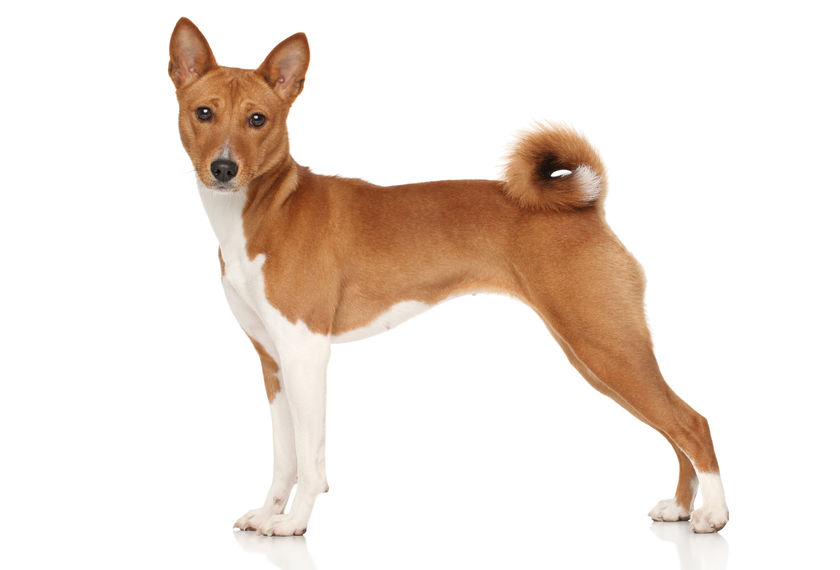
 Congo
Congo
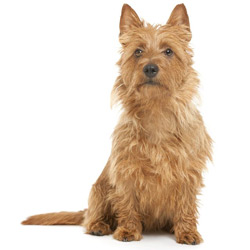
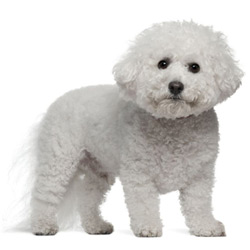

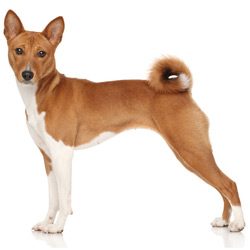
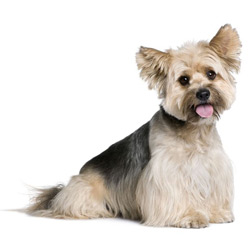
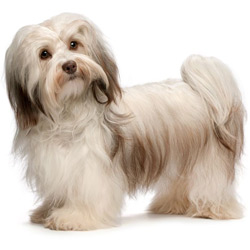
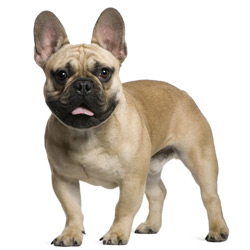

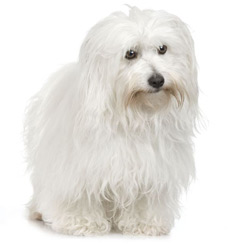
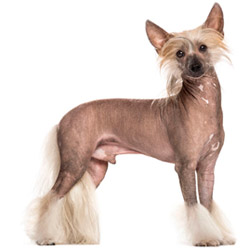
What do you think?